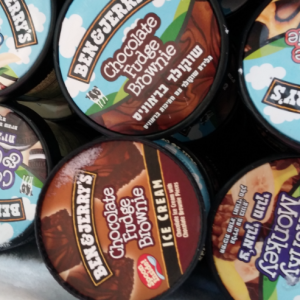The Power of 3rd Party Endorsements: How Ben & Jerry’s Scored Monnit Some Major Coverage

SnappConner PR client Monnit, a Utah-based wireless sensor company helping to make the Internet of Things a reality, last week scored some major national coverage when Ben & Jerry’s subsidiary Udder Ventures agreed to share its story about how Monnit’s sensors are keeping its ice cream safe—and saving the company thousands of dollars in melted product.
According to the article in Network World, which soon after appeared on sister publications InfoWorld and CIO (nationally and in Australia and Asia), Udder Venture’s “chief euphoria officer” John Slater said: “It’s a lot smarter than the security system I used to have. And the whole thing, including a year’s subscription to the portal, is about $300. It’s a minor investment for all of the information you get and compared with the cost of lost product.”
That endorsement, from a highly satisfied client, not only resulted in international media attention, hundreds of retweets and posts on social media, and a significant increase in visits to the company’s website, but gave others trying to solve similar problems a real-life example of the benefits the Internet of Things is bringing to the world.
So whether you’re about to announce a new product, an upgrade to an existing one—or think you have absolutely no news at all, finding a satisfied client or other party willing to share their successes with your product or service can result in some huge wins.
Paid or Unpaid?
According to the BusinessDictionary.com, a third-party endorsement is solicited or unsolicited recommendation or testimonial from an entity (usually a customer or user) other than the manufacturer and seller of a product or service. The Ben & Jerry’s story is an example of a non-paid third-party endorsement. Soliciting a celebrity, athlete or even an industry influencer or blogger to say good things about your company—like Oprah Winfrey does for Weight Watchers—raises ethical concerns, “at least when you don’t acknowledge they are being paid to make the claim.”
The Ethics in Public Relations website says, “Some organizations would have consumers believe that the endorsement is unsolicited and uncompensated, even if most consumers are likely to be skeptical of such reviews, it can be considered a deceptive practice.” And under the regulations of the Federal Communication Commission (FCC), bloggers can’t receive compensation without in some way acknowledging that they received it in exchange for a positive post. And for a PR professional to pay for these endorsements without acknowledging the payment is a breach of the Public Relations Society of America’s code of ethics as well.
As a result, do your best to find a client or other influencers willing to share their story with a positive endorsement of your product without a fee. If their story is especially interesting and unique, in most cases the resulting media coverage—and hits to their company website—is going to be a huge win for their organization as well.
Just ask Ben & Jerry’s and Udder Ventures!
